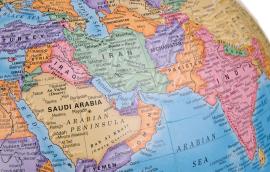Five Questions: Why the World Is Watching India’s New PM
Narendra Modi was sworn in as India’s new prime minister on Monday, a little over a week after a landslide victory at the polls. The resounding win gives Modi much greater freedom to implement his agenda than any Indian leader in recent years, says international economics fellow Russell Green. What will Modi’s India look like, and how will it affect the U.S.? Green, who spent four years in India as the U.S. Treasury Department’s first financial attaché to that country, explains.
Russell Green May 28, 2014








